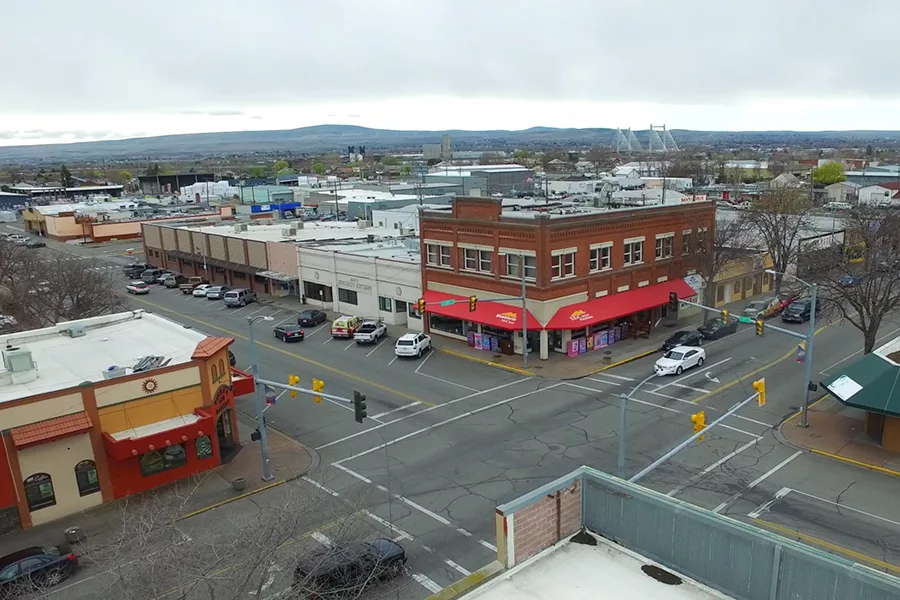
Home » Pasco adjusts rules affecting downtown businesses
Pasco adjusts rules affecting downtown businesses

October 13, 2021
Pasco is sweeping away some rules downtown business owners say keep them from investing and thriving in a five-block area.
A coalition of downtown business owners, frustrated by prohibitions that keep restaurants from putting sandwich boards on sidewalks, selling used bikes and computers, or opening fitness centers, successfully lobbied the city council to revisit the list of activities prohibited in its C-2 commercial business district.
In early October, the council agreed to make what it calls “minor” changes now, before a major revision takes effect, as part of an ongoing review of the downtown plan set to go to the council in 2022.
Downtown business owners and landlords told the council they do not have that long and sought immediate relief. Some, such as Leo Morales of Havana Café, have lobbied the council for years.
Councilman Craig Maloney pushed the issue, which led to it going to the council for a vote on Oct. 4.
Morales and other downtown entrepreneurs such as Lucy Gonzalez of Tipsy’s said the C-2 rules, conceived decades ago when Pasco was trying to clean up a troubled downtown area, make little sense and make outlaws of ordinary activities, such as selling used computers.
Thomas Granbois, who bought a downtown building earlier this year, said he’s turned away three prospective tenants, including a gym that wanted to start businesses, prohibited by the C-2 rules. Minor adjustments will spark investment by both, he said.
“The minor changes we’re asking for are no brainers,” he told the council.
Granbois, who serves on the Downtown Pasco Development Authority board, drafted the changes and rounded up nearly three dozen signatures from business owners to press for the changes. The Latino Business Alliance endorsed the changes as well, said David Cortinas, one of the advocates who wanted the rules changed immediately.
The city council voted to make the changes as quickly as land use law allows.
Property owners must be notified ,and the change must be published in the city’s newspaper of record. The council could hold a hearing by the end of October. If it finalizes the changes then, they would take effect five days later, putting the new rules in effect as early as late October or early November.
The amendments strike the C-2 rules prohibiting membership clubs, taverns, billiard and pool halls, amusement game centers, card rooms, bingo parlors, dance halls, night clubs, tattoo parlors, secondhand dealers and commissaries.
This means a water business can offer subscriptions to customers, a fitness club could open, a beauty salon could host karaoke and offer eyebrow tattoos, a computer repair shop could sell old computers and a bike shop could sell second hand bicycles.
It leaves other prohibitions in place. They include rules against gasoline and service stations and automobile services, outdoor storage, pawn shops, adult business facilities, adult theaters, adult bookstores, bathhouses, massage parlors and some community facilities.
The C-2 issue was a topic the Tri-Cities Area Journal of Business identified in a September story about the challenges of opening new businesses in old buildings. The changes to C-2 zoning will not solve what some consider a critical challenge, installing sprinklers to reduce the threat of fires.
The city is continuing to seek ways to help building owners with the significant cost. Both Morales and Gonzalez want to hold events in their businesses but can’t without sprinklers.
Real Estate & Construction Local News
KEYWORDS october 2021





